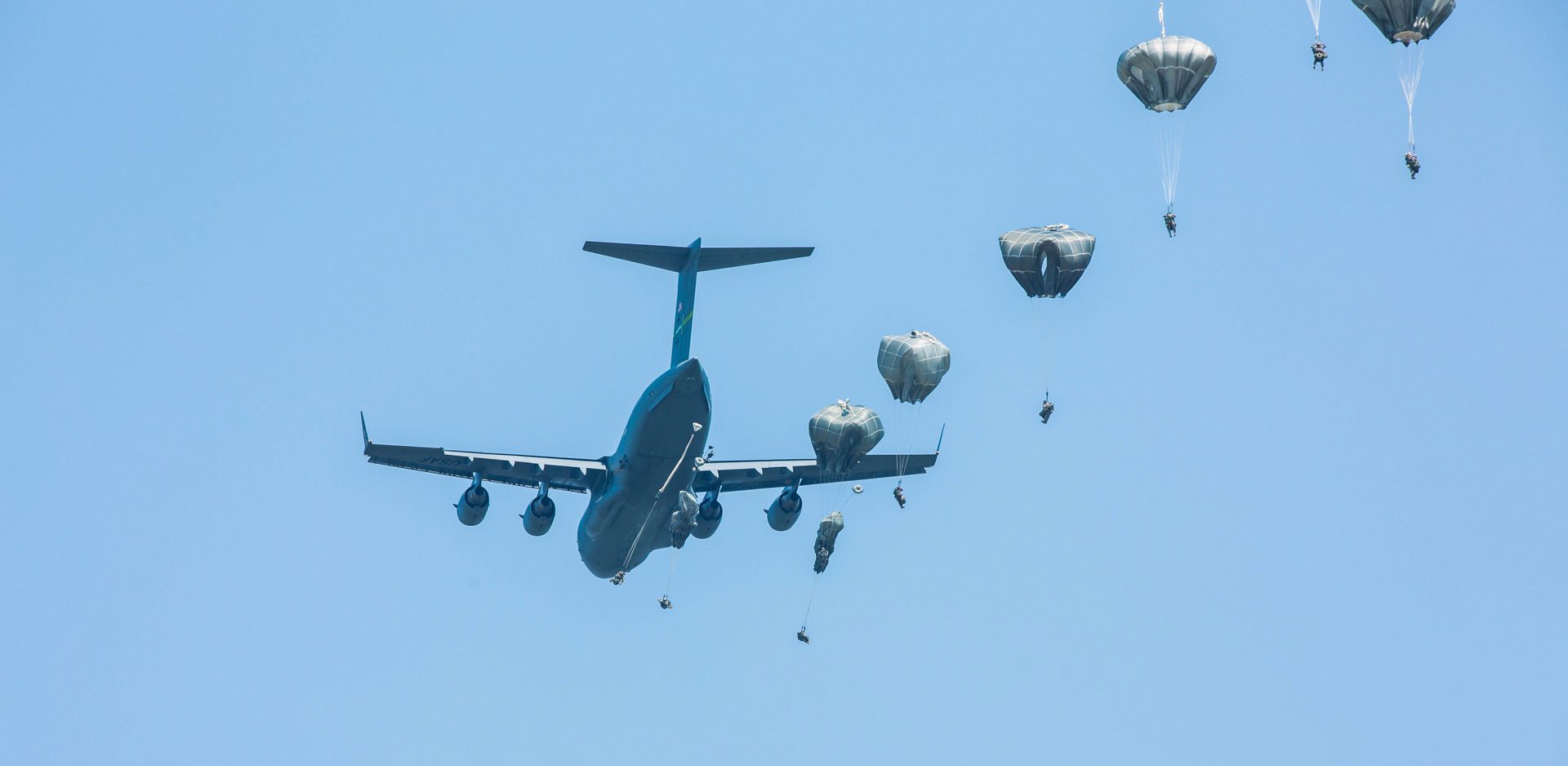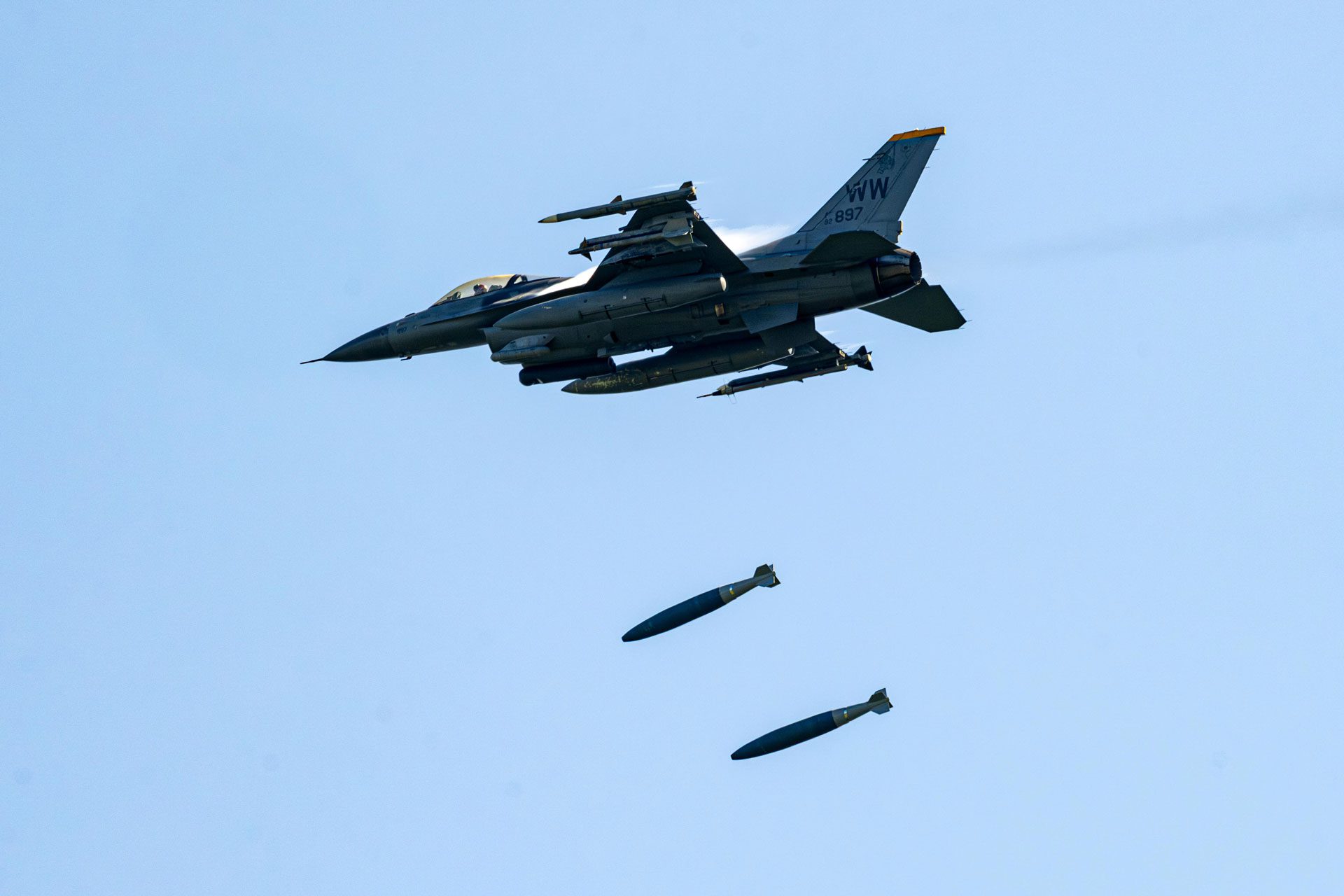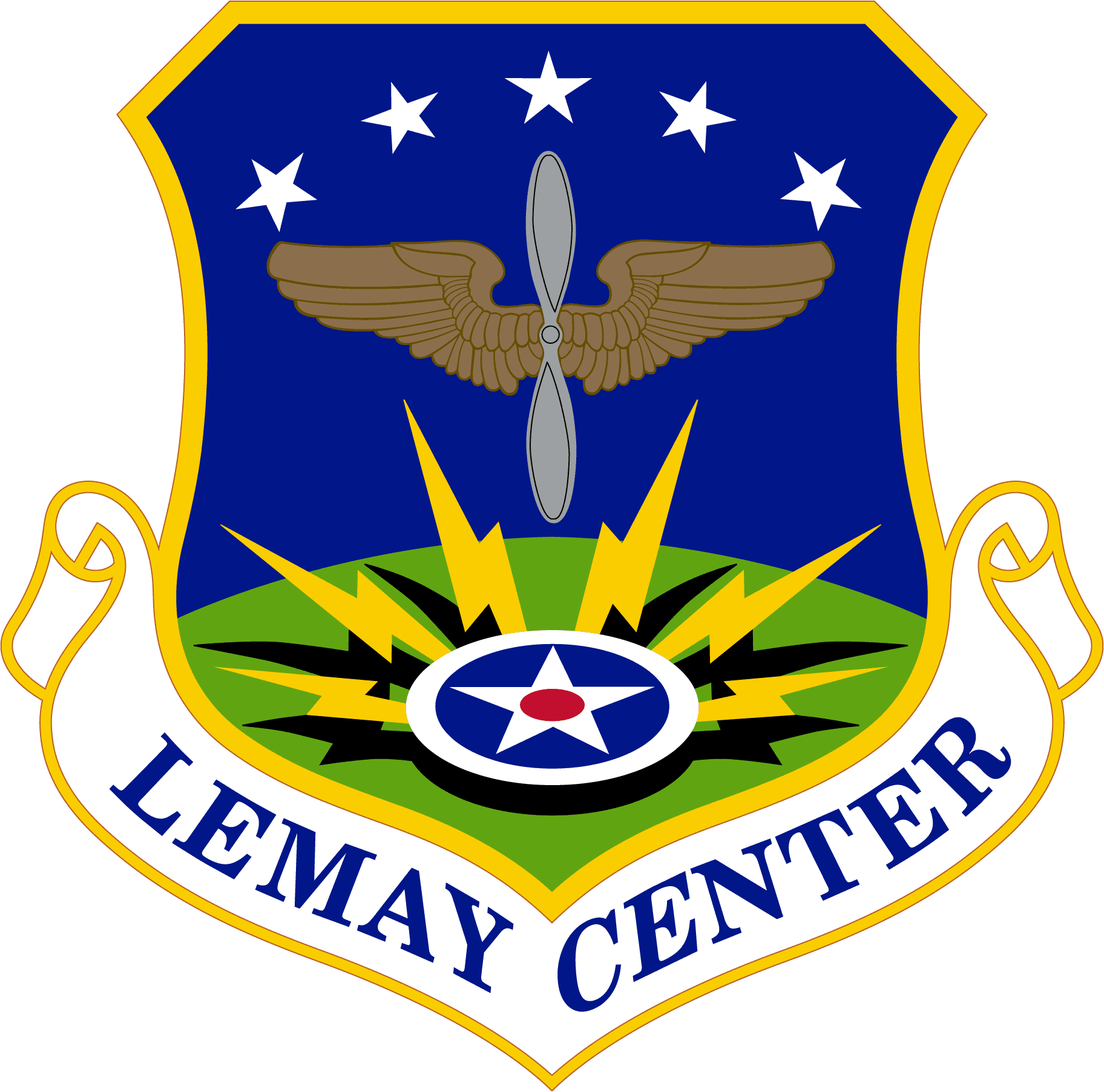Inspiring Doctrinal Innovation (IDI)
Essay Contest
Spring 2026
Submissions open 5 Jan 26 – 1 Mar 26
Sponsored by: The Curtis E. LeMay Center for Doctrine Development and Education, Air University Innovation Accelerator (AUiX), & The Eagle Institute
Prompt
Defending the homeland is a fundamental aspect of the Department of War’s mission to protect the United States and its interests. Recent events in Ukraine and Russia underscore the need to protect critical infrastructure, preserving not only the will of the populace to prevail, but also the military’s ability to project power.
The Joint Force relies heavily on a resilient national infrastructure. Considering likely vulnerabilities, historical precedents, doctrinal guidance, and emerging technologies, how should the USAF posture itself to minimize the impact of both kinetic and non-kinetic attacks on critical infrastructure within the homeland? Simultaneously, how can the USAF maintain its capability to deliver decisive airpower for the Joint Force Commander? Finally, what collaborative strategies should the USAF employ to provide the Joint Force and civil agencies capability to defend the homeland against multi-domain threats?

Background
The IDI essay contest is a cooperative effort between The LeMay Center and The Eagle Institute to accelerate innovation in Air Force doctrine by encouraging Airmen and Guardians of all ranks and AFSC’s to read, internalize, and debate Air Force doctrine in professional writing and discourse.
How To Participate
The competition is open to all Department of the Air Force personnel as well as current students of Air Force PME programs (US DoD personnel and international military personnel). Both uniformed and civilian personnel of the USAF and USSF are encouraged to participate.
Read the Contest/Submission Guidelines
Make sure you’re familiar with the contest rules.
Read the Contest Guidelines
Read the Submission Guidelines
Prepare Your Essay
Submission Process
Use the form below to upload your essay and provide the necessary details.
BEFORE MIDNIGHT, 1 March 26


Contest Guidelines
Essay Content, Structure, and Audience:
- Essays must reference at least one USAF Operational Doctrine publication. (U.S. Air Force Doctrine > Home (af.mil).
- Essays must be greater than 1500 words and less than 3000 words not including footnotes, headers, title, or author’s bio.
- Your essay should be clearly focused and establish that focus almost immediately, in part by providing a thesis in the first paragraph.
- Your essay should be clearly focused. Establish the focus by providing a thesis in the first paragraph.
- Your essay should be well structured and developed using a logical, orderly progression of writing. For example, a paragraph with a topic sentence, supporting sentences, and ending in a concluding sentence is one model to follow.
- A note on support/citations: authors may refer to themselves in the first person (e.g., “I could not put down the book”), but personal and professional experience are no substitute for external citations.
- Your audience does not necessarily share your opinion, background, and knowledge base; write in a well-reasoned supported manner.
- Finally, prose is important. Clarity, concision, and directness at the sentence level ensure even the most complicated ideas are presented in an accessible way. Avoid jargon.
Use of AI Tools for essay creation:
- Contestants are permitted to use AI tools to assist with writing the essay. It may be useful to use AI tools to assist with research, rephrasing, citations, and summaries within individual paragraphs. However, using an AI to write the entire essay is not recommended, as AI writing tools generally produce poor papers that do not answer the prompt or meet the requirements in the submission guidelines.
Essay Format:
- Please use AP Style for the content of your piece; that is, for matters including abbreviations, capitalization, forms of address etc.
- Your article should use the Chicago Manual of Style for formatting and citations. Begin each new paragraph without indenting the first sentence. Use footnotes only—do not use endnotes. Do not include bibliographies or works cited listings.
- Use one space only between a punctuation mark that ends a sentence and the first word of the next sentence. All punctuation goes within quotation marks in accordance with AP Style.
- Default to standard American English for spelling and punctuation.
- Avoid hyperlink citations.
Helpful notes and Resources
- Doctrine is about warfighting operations and organization. Avoid focusing on specific technologies or government policies. Instead, focus on how the technology changes the application of doctrine or how the interaction of the policy and doctrine creates friction that doctrine can address
- Read the doctrine that you are proposing to change carefully. Proposed changes may already be covered or may not be appropriate for the operational level of warfare. This contest is focused on operational doctrine and not tactics, techniques, and procedures (TTPs).
- If you are relatively new to operational doctrine, we are very excited you are participating. To help you have the best chance at winning, take a moment to either read the doctrine primer on doctrine.af.mil or listen to the What is USAF Doctrine podcast to ensure that your proposed changes are appropriate for doctrine.
Doctrine links:
www.doctrine.af.mil (USAF operational doctrine)
www.jcs.mil/doctrine/ (Joint Doctrine)
Podcast links:
Air Force Doctrine Podcasts on Apple
- Doctrine is about warfighting operations and organization. Avoid focusing on specific technologies or government policies. Instead, focus on how the technology changes the application of doctrine or how the interaction of the policy and doctrine creates friction that doctrine can address
- Read the doctrine that you are proposing to change carefully. Proposed changes may already be covered or may not be appropriate for the operational level of warfare. This contest is focused on operational doctrine and not tactics, techniques, and procedures (TTPs).
- If you are relatively new to operational doctrine, we are very excited you are participating. To help you have the best chance at winning, take a moment to either read the doctrine primer on doctrine.af.mil or listen to the What is USAF Doctrine podcast to ensure that your proposed changes are appropriate for doctrine.
Doctrine links:
www.doctrine.af.mil (USAF operational doctrine)
www.jcs.mil/doctrine/ (Joint Doctrine)
Podcast links:
Air Force Doctrine Podcasts on Apple
Submission Guidelines
- Simultaneous submissions are acceptable. The LeMay Center wishes to encourage Airmen and Guardians to write.
- We will accept only first-publication articles (previously published articles will not be accepted). Work submitted for academic requirements that is not officially published elsewhere IS acceptable.
- In addition to your Word attachment please include a brief biographical statement (e.g. “Maj Jones is an air mobility pilot and currently a student at ACSC.”). Include your current commander’s name, unit, and email address. Please also provide links to your Twitter handle and your LinkedIn profile, if applicable.
- Authors requiring official review before an article can be published should secure permissions prior to submission.
- If you create any custom images, figures, or tables for your article, please attach separately the highest possible quality of image for our use. Give credit for any images you do not create.
- Submit papers, bios, and commander contact information via the submission tool at www.auinnox.wpenginepowered.com.
- Simultaneous submissions are acceptable. The LeMay Center wishes to encourage Airmen and Guardians to write.
- We will accept only first-publication articles (previously published articles will not be accepted). Work submitted for academic requirements that is not officially published elsewhere IS acceptable.
- In addition to your Word attachment please include a brief biographical statement (e.g. “Maj Jones is an air mobility pilot and currently a student at ACSC.”). Include your current commander’s name, unit, and email address. Please also provide links to your Twitter handle and your LinkedIn profile, if applicable.
- Authors requiring official review before an article can be published should secure permissions prior to submission.
- If you create any custom images, figures, or tables for your article, please attach separately the highest possible quality of image for our use. Give credit for any images you do not create.
- Submit papers, bios, and commander contact information via the submission tool at www.auinnox.wpenginepowered.com.
The Prizes
Top essay will receive $1,000
LeMay/CC Coin, published in Wild Blue Yonder
2nd and 3rd Place Prize
LeMay/CC Coin, published in Wild Blue Yonder
Spring 2025 Winners
1ST PLACE WINNER
2d Lt Jonathan Williams
No Base is Safe: Joint Point Defense and Agile Combat Employment in an Era of Saturation Threats
2nd PLACE WINNER
SrA Carrson Bruderer
Defending the Edge: Forging a Joint Point Defense Doctrine for Agile Combat Employment
3rd PLACE WINNER
Capt Amanda Molina
The Point Defense Paradox: Sustaining Airpower in Contested Distributed Operations
Key Dates
5 Jan 2026
Submissions Open
1 Mar 2026
Last Day to Submit
This will be the final day you can submit your essay.
May 2026
Winners Announcement
Remember to look back and see who won!
Submit Your Essay
Submissions for Spring 2026 are open
Amplify The Message
Share with #USAFDoctrine or #IDIEssayContest
#USAFDoctrine on X (formerly Twitter)/Facebook


